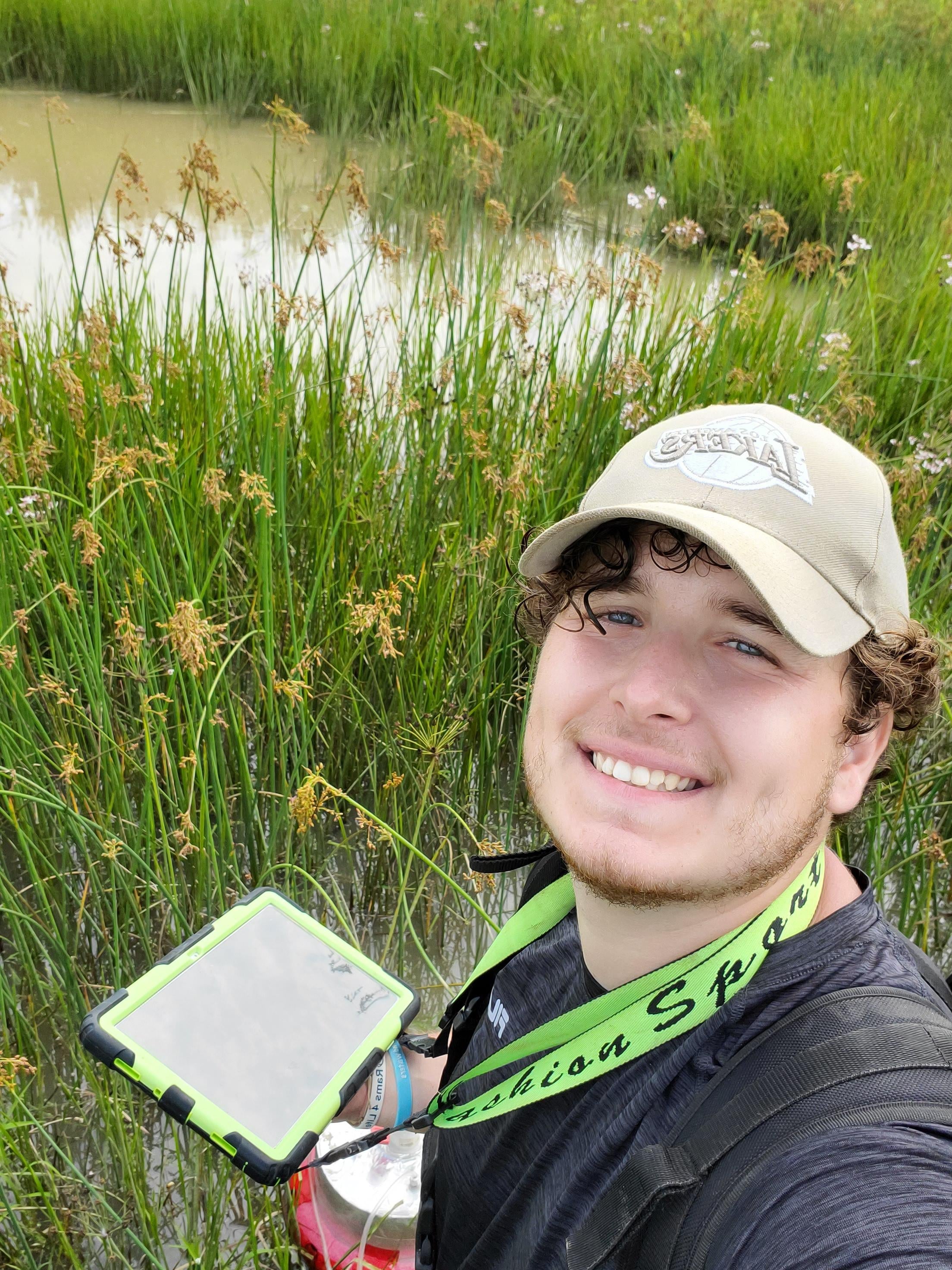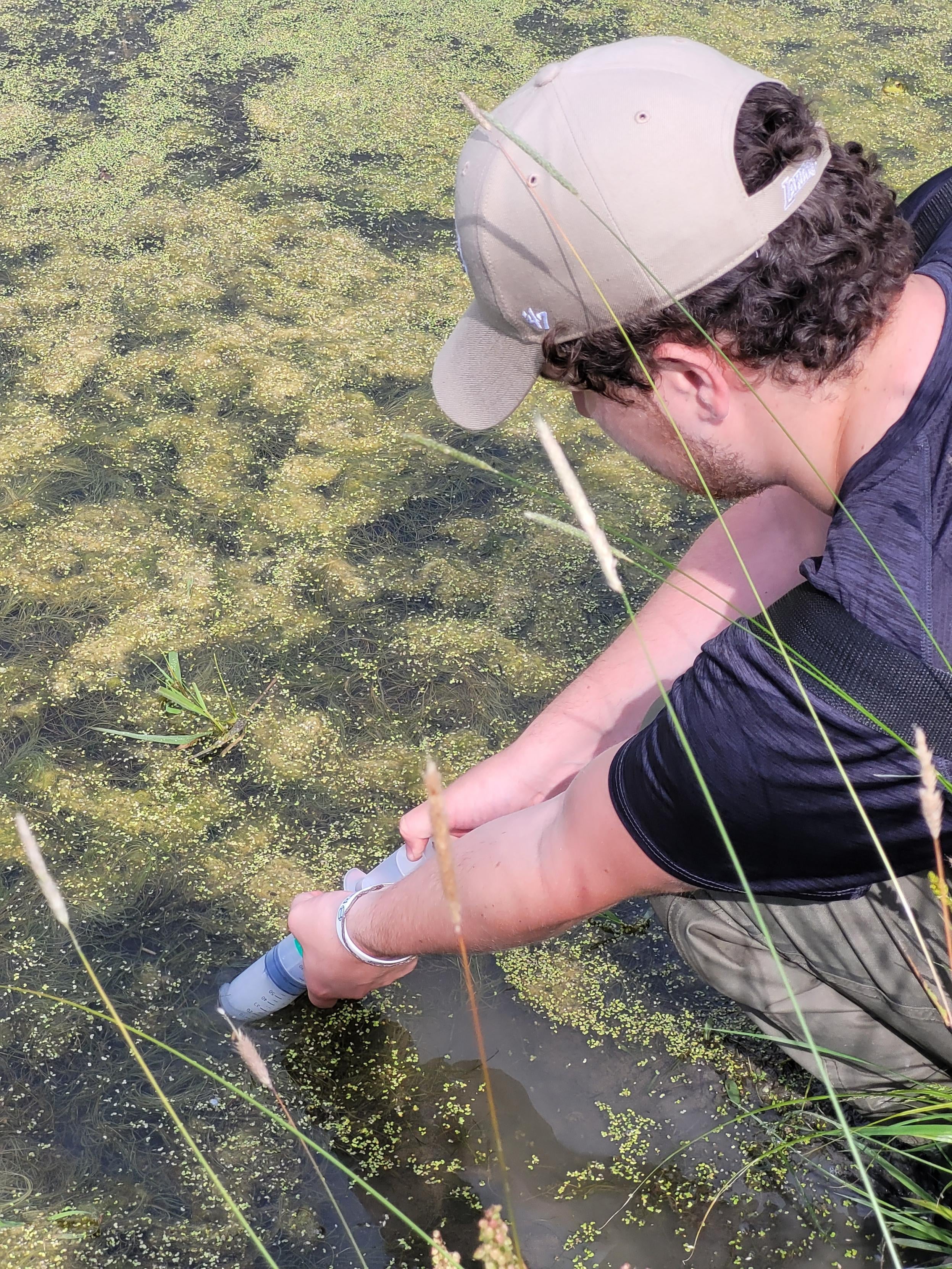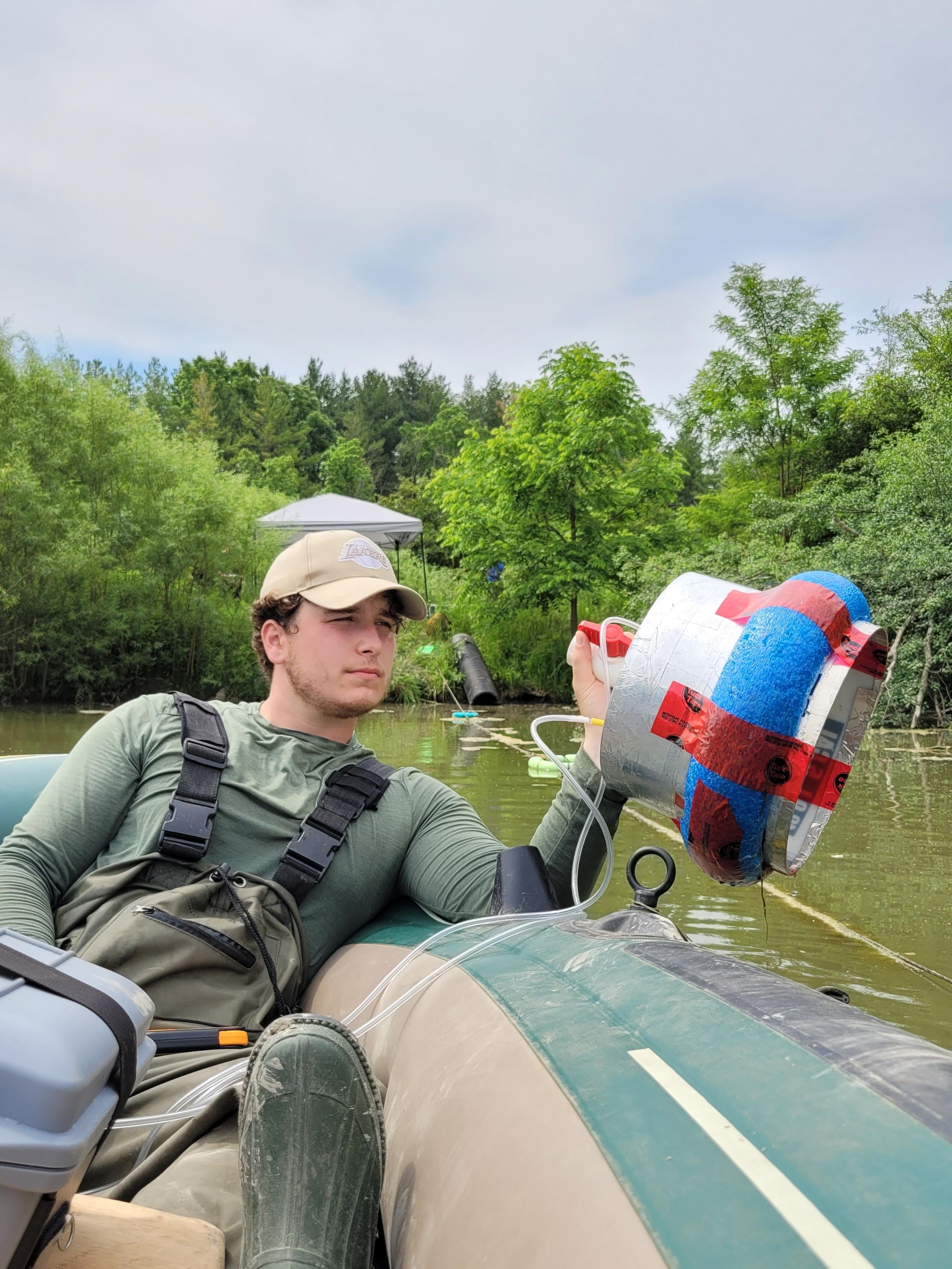By Sarah Fullerton
Digital Communications Specialist
To boost opportunities for undergraduate students to engage in research, the Faculty of Science introduced new funding to support summer research assistantships. As a result, over 50 undergraduates participated in world-renowned research under the guidance of esteemed faculty tackling some of the most complex challenges of our time.
One such student is soon-to-be Earth Sciences graduate, Mackenzie Jeffery James Sluys. In Dr. Tonya DelSontro’s lab, Sluys is continuing his thesis research, working to quantify greenhouse gas emissions from restored wetlands. He saw this role as an excellent opportunity to take what he learned in the classroom and apply it in the field to gain hands-on experience before crossing the stage at graduation this fall.
How did you receive a summer research assistantship?
I completed my thesis on wetlands with Professor Tonya DelSontro, and she saw an opportunity for me to continue my learning as a summer research assistant in her aquatic GHG lab. I eagerly accepted the opportunity, as I didn't participate in a cooperative degree and wanted to gain hands-on field experience before graduating.
Tell us about the research and what you are learning
This research extends my learning beyond what I did in my undergraduate thesis project. In the lab, we are working to quantify greenhouse gas emissions from wetlands, specifically focusing on restored wetlands. Many people mistakenly believe that restored wetlands are net carbon sinks, but recent research shows that restored wetlands emit large amounts of methane. Methane is a potent greenhouse gas that significantly impacts the atmosphere. In the field, we aim to measure and quantify the amount of methane being released from eight restored wetlands across Southern Ontario so that we may model future emissions in similar environments.
What is the impact of this research?
Wetlands have existed for thousands of years and once altered or destroyed, they are tough to restore to their natural state. Through our research, we are also discovering that restoring wetlands can have unintended consequences that may exacerbate global climate change.
Raising awareness through accurate modelling of these systems is crucial. There are significant gaps in understanding the greenhouse gas emissions from both natural and restored wetland systems. This research aims to bridge that gap by quantifying and presenting the greenhouse gases emitted from restored wetlands in an accessible format. By doing so, decision-makers can gain a comprehensive understanding of the impacts of restoring wetlands and make more informed choices. Wetlands are complex and unique systems that present numerous challenges when modelling their carbon cycling. Improving our understanding of restored wetland emissions gives insight into the long-term effects of human influence on these sensitive environments.
How do you feel you have benefited from being a summer research assistant?
As someone who wasn’t in a co-op stream, I am grateful for the hands-on experience I gained this summer. This opportunity allowed me to conduct various laboratory analyses and participate in fieldwork. I also appreciate the chance to conduct research under the guidance of Dr. DelSontro. I believe this experience will be crucial for my career moving forward!
This work is associated with an NSERC Alliance grant with PI-Nandita Basu (Civil Eng/EES) and DelSontro as co-PI, and partners with Ducks Unlimited Canada.





